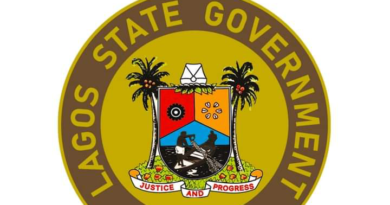Tinubu Signs Four Landmark Tax Reform Bills into Law to Boost Nigeria’s Revenue and Investment Climate
In a significant move to strengthen Nigeria’s fiscal framework and modernize its tax system, President Bola Ahmed Tinubu has officially signed into law four critical tax reform bills aimed at reshaping tax administration, enhancing transparency, and promoting economic growth. The ceremonial signing took place at the Aso Rock Presidential Villa in Abuja on Thursday at around 3:20 p.m. local time, marking what experts see as a transformative step for Nigeria’s revenue generation and business environment.
The newly signed laws are:
- Nigeria Tax Bill (Ease of Doing Business)
- Nigeria Tax Administration Bill
- Nigeria Revenue Service (Establishment) Bill
- Joint Revenue Board (Establishment) Bill
These bills were previously passed by the National Assembly after several months of consultations and stakeholder engagements across key sectors. According to the Presidency, the new tax legislation is expected to significantly improve tax administration, boost revenue generation, create a more predictable fiscal environment, and attract both domestic and foreign investments.
Presidential spokesperson Bayo Onanuga emphasized that the reforms will simplify Nigeria’s fragmented tax system, improve ease of doing business, and reduce the burden on taxpayers. “When the new tax laws become operational, they are expected to significantly transform tax administration in the country,” he stated.
Key Highlights of the Four Bills:
- Nigeria Tax Bill (Ease of Doing Business):
This bill seeks to consolidate Nigeria’s numerous and often conflicting tax laws into a harmonized system. It will reduce the multiplicity of taxes, eliminate overlapping mandates, and lower the cost and complexity of tax compliance for businesses. - Nigeria Tax Administration Bill:
This legislation establishes a unified legal and operational framework for tax management at the federal, state, and local government levels. It aims to streamline operations, minimize tax evasion, and ensure uniform practices across all tiers of government. - Nigeria Revenue Service (Establishment) Bill:
Replacing the existing Federal Inland Revenue Service (FIRS) Act, this bill establishes the Nigeria Revenue Service (NRS), a more autonomous and performance-driven national tax agency. The NRS will not only collect tax revenues but also manage non-tax revenues, with strict accountability, transparency, and performance metrics guiding its operations. - Joint Revenue Board (Establishment) Bill:
This bill creates a formal governance structure for cooperation among tax authorities nationwide. It introduces key oversight bodies such as the Tax Appeal Tribunal and the Office of the Tax Ombudsman, which will provide checks and balances and address taxpayer grievances.
The signing ceremony was attended by top officials including Senate President Godswill Akpabio, Speaker of the House of Representatives Tajudeen Abbas, Senate Majority Leader Opeyemi Bamidele, and House Majority Leader Julius Ihonvbere. Also present were Kwara State Governor Abdulrahman Abdulrazaq, Chairman of the Nigeria Governors’ Forum, and Imo State Governor Hope Uzodinma, head of the Progressives Governors Forum.
Other notable attendees included Minister of Finance and Coordinating Minister of the Economy, Wale Edun, and Attorney General of the Federation, Lateef Fagbemi, who all hailed the legislative milestone as a bold step toward building a more robust and accountable fiscal system in Nigeria.
The passage and signing of these four tax reform bills reflect President Tinubu’s commitment to fiscal reform, economic diversification, and creating a conducive business environment. Analysts believe these reforms, if properly implemented, could boost investor confidence, increase the efficiency of public revenue collection, and significantly improve Nigeria’s global economic standing.
As Nigeria continues to face mounting economic challenges, including dwindling oil revenues and debt pressures, this bold move positions the country for long-term fiscal stability and sets the stage for a modern, fair, and efficient tax system fit for a rapidly evolving economy.
















